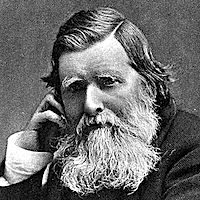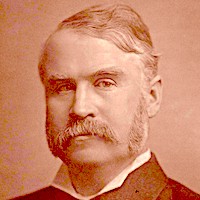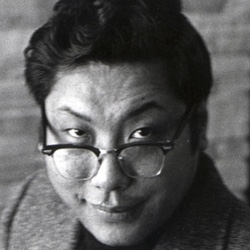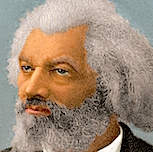

Tao Te Ching

Complaint
The foundation of complaint builds on arrogance, grows on mindless, selfish self-serving, and easily becomes some type of egomania. To bewail any circumstance means to think we know that something else would have been better. But how can we know that? We would have to get in a time machine, go back, do something differently, and see if the outcome becomes more beneficial. Too often, what we want and chase after becomes a disaster while circumstances we wish we could run away from become the best things that happen to us. Most of us, most of the time want our lives to improve but don’t want to suffer through the confusion and irritations of the changes that make that improvement possible. We avoid what does benefit, what's truly good for us—obstacles that make us think, challenges that test and improve our skills, pain and suffering that hurts but opens our hearts to more compassion and appreciation.
The relativity of our complaints magnify when we look from a more global perspective. The situation of an extremely poor, homeless person in the US transposed to a poor place in India, China, or Africa becomes middle class. When people in the West complain about the income gap between the top and bottom classes, they don’t realize that the same situation applies on the global scale, and that the same complaint and resentment the lower classes have for the middle classes applies to them from people in developing countries and resentment the middle classes have toward the upper applies to them from the middle class point of view.
Most of us bemoan our fates, complain about our problems, and feel bad about the difficulties we mush face. Some of us though appreciate difficulties as creative challenges, see problems as opportunities, and are too busy working on solutions to feel bad about anything. Without change, life becomes insipid and meaningless. Without meaning, what is the value of life? So often, our desires and attachments are to what's not good for us—like only seeking pleasure and comfort, an uncaring attitude toward human suffering, running from difficulties, and feeling a victim of problems.
The opposite approach, however—never complaining about anything—can easily slip into an indulgent complacency, a Candide-like naivte´, an animal-realm unconsciousness. One difference becomes focusing the criticism on past events that we can't do anything to change versus a focus on current situations that can be improved or corrected. Complaining about past injustice and slights only encourages listeners to follow that bad example. But the recognizing of problems that need attention doesn't have to become criticism. Often a more skillful approach would involve a focus on and expression of appreciation for people and systems that have potential for solving the problem rather than feeding the negative with attention.
Quotes (71)

“To make wail and lament for one's ill fortune, when one will win a tear from the audience, is well worthwhile.”

“Whoever criticizes others must have something to replace them. Criticism without suggestion is like trying to stop flood with flood and put out fire with fire. It will surely be without worth.”

“We all sit around complaining that we have never been worse governed... but really listen only to those who support our desires... the masses like better a person who flatters them than one who really benefits them.”

“A bad feeling is a commotion of the mind repugnant to reason, and against nature.”

“Those who complain the most accomplish the least. Complaining is a complete waste of one’s energy.”

“Epicurus himself—whose genius outshone the race of men and dimmed them all as the stars are dimmed by the rising of the fiery sun—died. And will you kick and protest against your sentence?”

“Why so quick to remove a speck from your eye, when If it's your mind, you put off the cure till next year?”

“Small-minded people blame others. Average people blame themselves. The wise see all blame as foolishness.”

“Seemeth it nothing to you, never to accuse, never to blame either God or Man? to wear ever the same countenance in going forth as in coming in? This was the secret of Socrates: yet he never said that he knew or taught anything…”
 “When you start to criticize someone’s fault, ask yourself which of your own faults most closely resembles it.
“When you start to criticize someone’s fault, ask yourself which of your own faults most closely resembles it.”

“People scorn the poor who have no wealth. They also criticize the rich who have it. What pleasure can derive from keeping company with people such as these, so difficult to please?”

“Whosoever complains of the bad character of another man has revealed the badness of his own character.”

“For both of us with right on love complain.
I am so full of sorrow, I maintain
Another single drop could find no place
To sit on me, because there is no space.”

“Never complain. To complain always brings discredit... and to disclose one insult just creates an excuse for another.”

“People Are Always Wrong About: hating to be fooled by others while liking to be fooled by oneself.”

“Those whose main concern is food and clothing are untrustworthy in an impasse… complaining against heaven and blaming people.”

“I hate to complain...No one is without difficulties, whether in high or low life, and every person knows best where their own shoe pinches.”

“May I not be like those who spend their days complaining about headaches and their nights drinking the wine which gives them their headaches!”

“It's useless to complain about your enemies; if your whole being is a standing reproach to them, they can never become your friends.”

“Hatred comes from the heart; contempt from the head; and neither feeling is quite within our control.”

“But one also finds in the human heart a depraved taste for equality, which impels the weak to want to bring the strong down to their level, and which reduces men to preferring equality in servitude to inequality in freedom”

“Summer is delicious, rain is refreshing, wind braces up, snow is exhilarating; there is no such thing as bad weather, only different kinds of good weather.”

“Noise proves nothing. Often a hen who has merely laid an egg cackles as if she had laid an asteroid.”

“there is no unfairness in punishing people for their misfortunes or rewarding them for their sheer good luck; it is the normal condition of human life that this should be done, and no right-minded person will complain of being subjected to the common treatment.”

“Oh, don't the days seem lank and long
When all goes right and nothing goes wrong,
And isn't your life extremely flat
With nothing whatever to grumble at!”

“Denunciatory rhetoric is so much easier and cheaper than good works, and proves a popular temptation. Yet is it far better to light the candle than to curse the darkness.”

“A pessimist is somebody who complains about the noise when opportunity knocks.”

“An adventure is only an inconvenience rightly considered. An inconvenience is only an adventure wrongly considered.”

“We cannot change anything unless we accept it. Condemnation does not liberate, it oppresses.”

“Will is of little importance, complaining is nothing, fame is nothing. Openness, patience, receptivity, solitude is everything.”

“Nothing can doom man but the belief in doom, for this prevents the movement of return.”

“The problem goes much deeper than religion or politics, it starts in our minds, in our habits, in the constant conditioning that has gone on and on for centuries. Judging, prejudice, likes and dislike are all part of this same problem.”

“Whenever you feel like criticizing any one... just remember that all the people in this world haven't had the advantages that you've had.”

“However unpalatable certain aspects of reality may be, they have to be faced as facts and met at their own level. Problems cannot be solved by disapproval but only by facing them.”

“She would rather light a candle than curse the darkness, and her glow has warmed the world.”

“And when they became discontented, as they sometimes did, their discontentment led nowhere, because being without general ideas, they could only focus it on petty specific grievances.”

“Instead of only criticizing your culture, you should devote your mind and body to practicing this simple way. Then society and culture will grow out of you.”

“All situations result from and merge into other situations... We accept what cannot be altered with tranquil joy, never repining, no matter what unpleasant things happen to us. We make the best of each temporary setback.”

“The slave is completely at the mercy of external events. If fortune smiles on him, he struts and boasts and attributes her favors to his own power and wisdom—which, as often as not, had nothing to do with it. If fortune frowns, he whines and weeps and grovels, putting the blame for his sufferings on everything and everybody except himself.”

“There was never a moralist at any time who was not certain that things were going from bad to worse.”

“A complaint is one form of anger, and anger—especially hidden anger—keeps the world in a mess... There's a big difference between experiencing your anger and thinking you have to put it out there and fix somebody with it.”

“When I really worry about something, I don't just fool around. I even have to go to the bathroom when I worry about something. Only, I don't go. I'm too worried to go. I don't want to interrupt my worrying to go.”

“If you don’t like something, change it. If you can’t change it, change your attitude. Don’t complain.”

“Don’t complain of terrible circumstances… they are the sources of celebrated trophies.”

“Oh, how short-sighted you who dismiss the philosophy or sage
Because of one small disagreement.
Don’t you know that every whole is flawed
And also full of truth?
Much more suspect
Believing all of anything is true.”

“Race, gender, ethnic, national, age, handicap, appearance-based prejudice are all ways of substituting something trivial and unworthy for real merit and ability. Prejudice means trying to preserve unearned privilege and advantage.”

“Anger, resentment, envy, and self-pity are wasteful reactions. They greatly drain one's time. They sap energy better devoted to productive endeavors.”

“Don't criticize other people's way of life; reflect on your own complaining, resentment, and anxiety.”

“Maybe the most important teaching is to lighten up and relax. It’s such a huge help in working with our crazy mixed-up minds to remember that what we’re doing is unlocking a softness that is in us and letting it spread. We’re letting it blur the sharp corners of self-criticism and complaint.”

“All people complain to a greater or lesser extent... But the ultimate complaint comes from a sense of having no joy... You are being toasted between two pieces of hot metal.”

“For a Westerner to trash Western culture is like criticizing our nitrogen/oxygen atmosphere on the grounds that it sometimes gets windy, and besides, Jupiter's is much prettier. You may not realize its advantages until you're trying to breathe liquid methane.”

“most people end up blaming either external conditions or themselves. However, because it reflects a loss of confidence in oneself, blame only makes the search for happiness more difficult”

“Nothing is intrinsically or ultimately bad. Any situation that arises is only relatively good or bad based on many factors, including—most significantly—how you perceive the situation and how you respond to it.”














Comments (0)